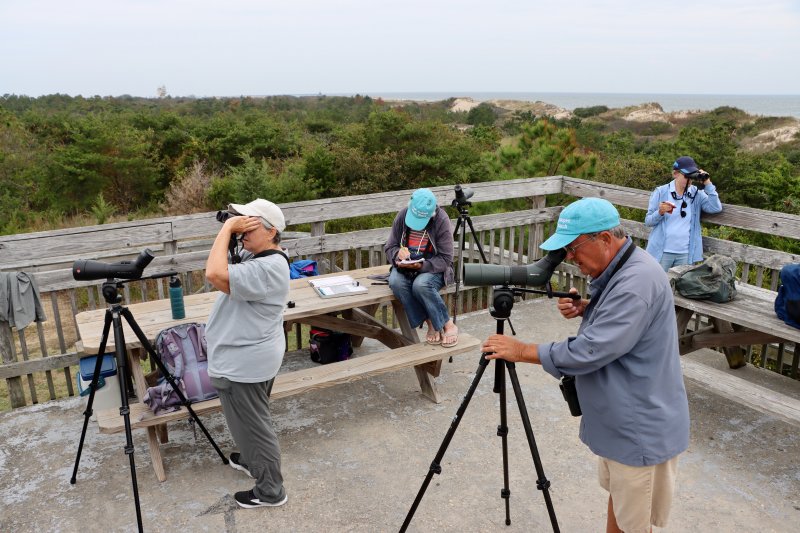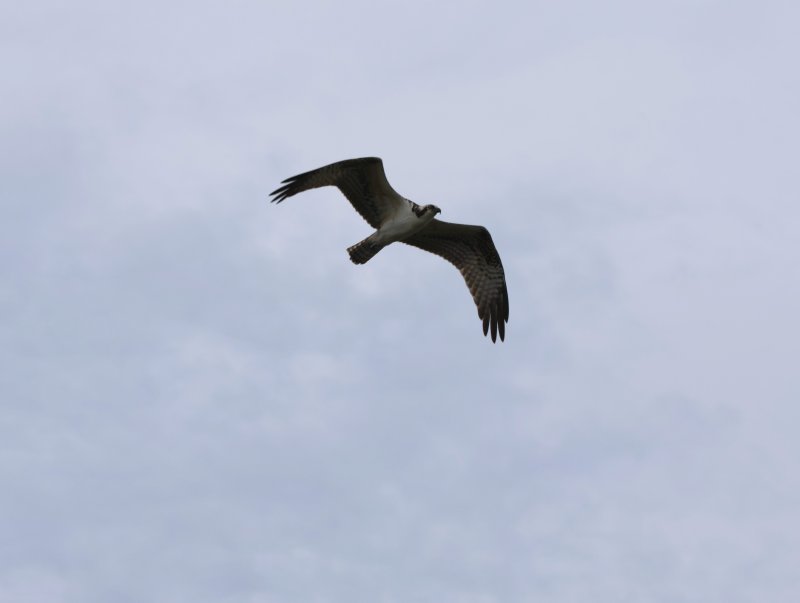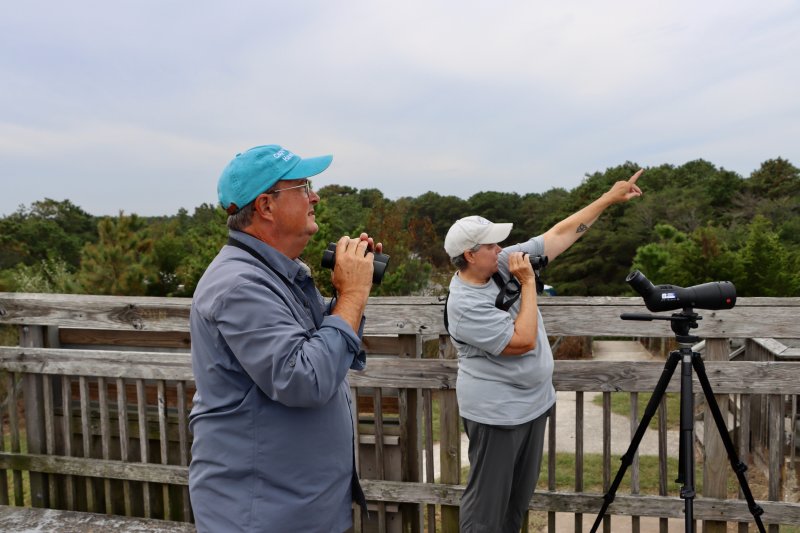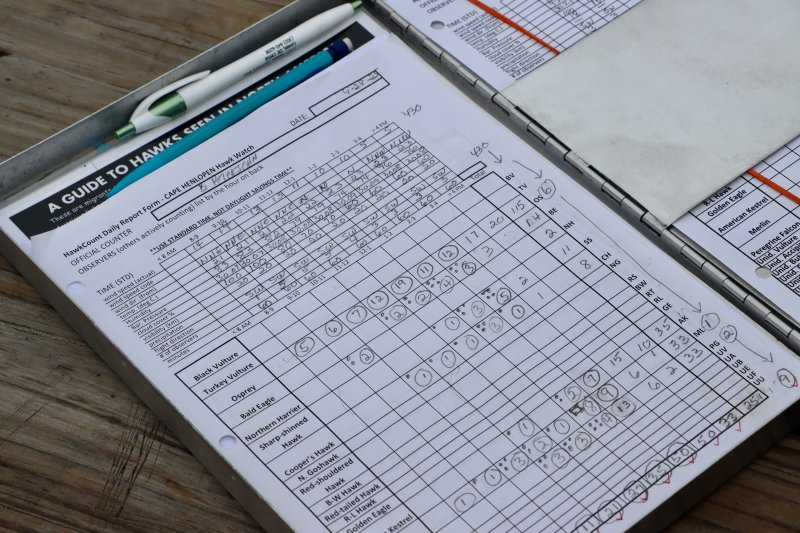Budget cut makes paid bird counters endangered species
When birds head south for the winter, Jen Ottinger heads east to Cape Henlopen State Park.
The Colorado resident is a migratory bird expert. She is paid each September through November to climb the stairs at the Hawk Watch to count hawks, falcons, ospreys and other raptors that are passing through the Cape Region’s airspace.
When she’s not here, she’s tracking golden eagles in Wyoming or bald eagles in Arizona.
Ottinger and a second bird counter in northern Delaware have been paid with federal funds administered by the Delaware Department of Natural Resources and Environmental Control. But now, like a kestrel heading to Florida, that money has flown out of the budget.
“I’ve been at Cape Henlopen for 14 years, so this is my last year,” Ottinger said.
Tom Stock, a Hawk Watch volunteer and retired attorney, estimated DNREC received about $50,000 per year in federal funds to maintain the two paid positions.
DNREC spokesman Michael Globetti sent the Cape Gazette a statement regarding the funding.
“The Hawk Watch may continue as a volunteer or partner-led program, which is how it began originally. But at this time, DNREC has chosen to reallocate resources to higher conservation priorities identified in the 2025 Delaware Wildlife Action Plan, while also continuing to support our nonprofit partners in recruiting and managing volunteers who wish to keep the Hawk Watch tradition going,” the statement read, in part.
Matt Ritter, director of the DNREC Division of Parks and Recreation, commented on the future of Hawk Watch Oct. 1 at a public session on proposed state park fee increases.
“Hawk Watch is a balance of professional services we provide within DNREC, as well as our incredible volunteers,” Ritter said. “The volunteers will continue to commit to that service. It’s a great amount of research, and we don’t want to give that up.”
Counting birds at Hawk Watch is not a high-tech job. Ottinger and the volunteers use spotting scopes and notebooks. Their tally sheets resemble a baseball scorecard.
But, they said, old school or not, the annual count provides critical information to identify trends.
Stock and Ottinger said 2025 has been an average year, but they said overall, the numbers are declining.
“Yesterday [Sept. 28], we had a good falcon day. We saw 33 peregrine falcons. But, there was a time we would get 100 a day,” Stock said.
They also point to the ospreys that are frequent fliers over Hawk Watch.
“Ospreys are in trouble, especially in the Chesapeake Bay, because of overfishing of menhaden,” Stock said.
“You might see all these active nests, but the problem is the young are not surviving, because the adults can’t find enough fish to feed them,” Ottinger said. “If you have to make a choice to feed your young or yourself, you’re going to pick yourself first.”
Stock said reversing the decline is not DNREC’s job. He said the key is habitat preservation.
“You lose large tracts of uniform habitat and the animals don’t know what to do,” Stock said. “You used to have large flocks of snow geese in that field where Costco is going to go on [Route] 24. They’re still here, but now you have go to Prime Hook to see them.”
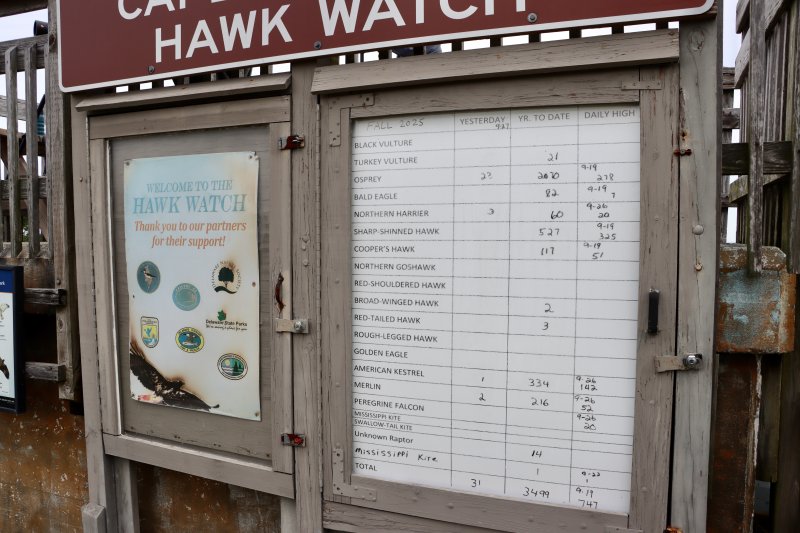
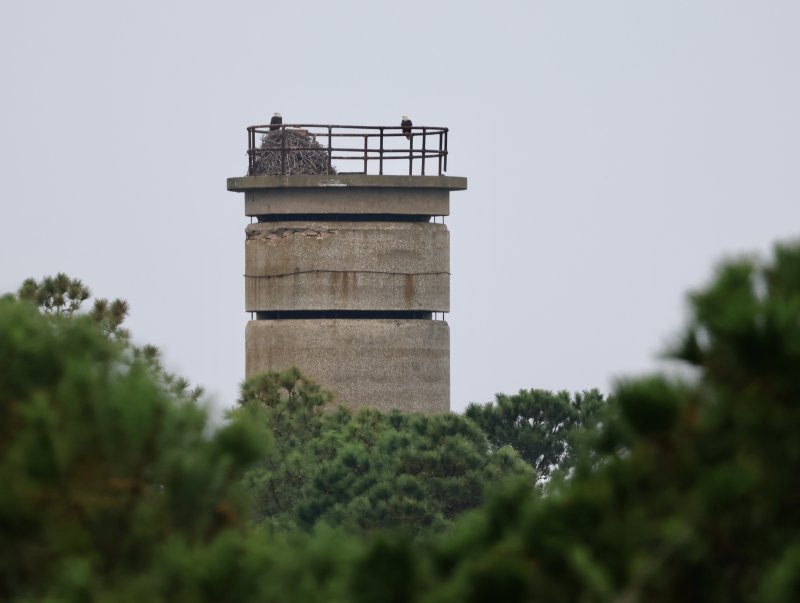
Bill Shull has been covering Lewes for the Cape Gazette since 2023. He comes to the world of print journalism after 40 years in TV news. Bill has worked in his hometown of Philadelphia, as well as Atlanta and Washington, D.C. He came to Lewes in 2014 to help launch WRDE-TV. Bill served as WRDE’s news director for more than eight years, working in Lewes and Milton. He is a 1986 graduate of Penn State University. Bill is an avid aviation and wildlife photographer, and a big Penn State football, Eagles, Phillies and PGA Tour golf fan. Bill, his wife Jill and their rescue cat, Lucky, live in Rehoboth Beach.














